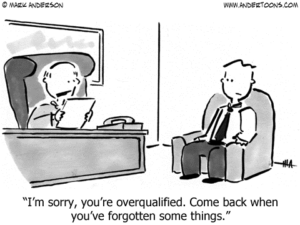 Let’s look a scenario. XYZ company has an opening for a Level II help desk position in its IT department. The hiring decision comes down to two people:
Let’s look a scenario. XYZ company has an opening for a Level II help desk position in its IT department. The hiring decision comes down to two people:
- Applicant A has a few years of experience, has done some user support, maybe worked on server or two, but has no discernible problem solving skills, and really no experience to call upon if they start to face an issue they have never encountered before.
- Applicant B has years of experience in many different industries, has dealt with both large and small user environments, and actually has troubleshooting experience on a server. Applicant B also has Web Design experience, which is vitally important because of the
Who will get the job? Don’t think too hard. It will probably be (drum roll please) applicant A. Why? The answer is not so simple. Money is definitely a consideration. Applicant A is cheaper, but more importantly, he won’t want too much. The perception is that applicant A will sit in his cubicle and do what he is told, not make waves, and just be happy to have the job.
The reality in this situation may be far different. Our friend Mr. A may, by virtue of his inexperience and lack of curiosity, turn out to be a terrible employee due to his lack of drive and his willingness to “just get by.”
Meanwhile, applicant B lost out on his opportunity to contribute to a company. To actually make a difference. XYZ Company missed out on its opportunity to take on an employee who could actually change things for the better.
All because someone decided that the person was overqualified.
The myth of overqualification is one of the reasons that American business is in the state it’s in. The unwillingness of managers to hire someone who might know more than they do, the refusal to pay qualified people what they are worth, and the staggering lack of imagination in general.
–Joe Bowen
